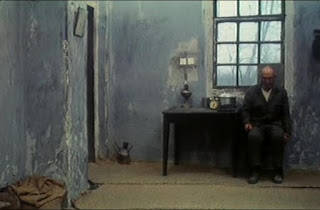LINKS :: Lisandro ALONSO
Lisandro ALONSO (born 2 Jun 1975; Buenos Aires, Argentina) = 34 yold in 2009 4 films / 4 screenplays (1st film: 2001/latest film: 2008) INSPIRED BY : Fernando Birri ( Tire dié , Los inundados ), Héctor Babenco ( Pixote ), Jorge Preloran, Nicolas Sarquis ( Palo y hueso ), Lumière, Abbas Kiarostami, Werner Herzog ( Aguirre )? C.C.C. films ( strict model in red ) : Liverpool ; Fantasma ; Los Muertos ; La Libertad INFLUENCE ON : Paz Encina ? Quick scroll : BIBLIOGRAPHY | BOOK | ONLINE ARTICLES | INTERVIEW | WEBSITES | DOCUMENTARY S/T sin titulo (2009) Short - BAFICI 2009 " Days in Buenos Aires: Lisandro Alonso " By: Robert Koehler ( Film Journey , 13 April 2009) (add link here) Liverpool (2008) IMDb link - Quinzaine des Réalisateurs Cannes 2008 "Liverpool, Patagonie" By: Jean-Philippe Tessé ( Cahiers du cinéma , n° 634; May 2008) [FRENCH] " Liverpool (Argentina) " By: Robert Koehler ( Variety ; 19 May 2008) "Liverpool Sud" B

